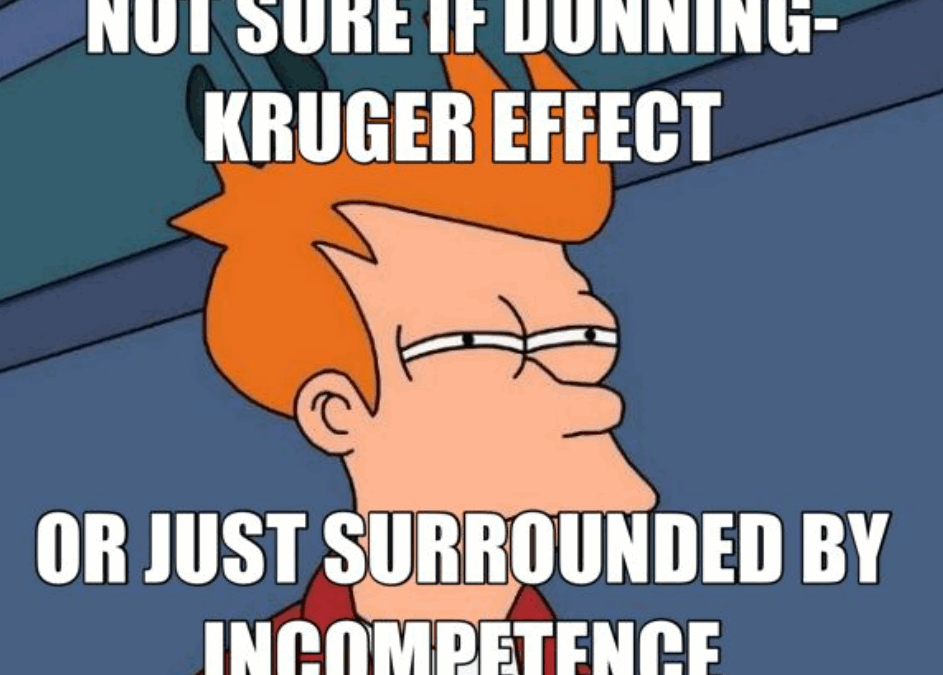The above phrase is taken from the Dunning-Kruger Effect. This is a cognitive bias where people with low ability or knowledge in a particular area tend to overestimate their competence, while those who are highly skilled may underestimate their ability.
Or in other words:
- A novice will become overconfident in their knowledge – e.g. “I watched one YouTube video and now I am an expert”.
- Intermediate Learners will start to gain more knowledge, but their confidence drops – e.g. “This is more complex than I thought”
- Finally, once an expert (with deep knowledge), confidence recovers. But experts often underestimate themselves because they assume that others know as much as they do.
While this sounds straightforward, it does have some issues and benefits for society.
Pros of Understanding the Dunning-Kruger Effect
- Improves Self-Awareness – Encourages humility and deeper reflection on your true knowledge level.
- Promotes Lifelong Learning – Reminds us to keep learning and be sceptical of quick assumptions.
- Better Collaboration – Helps leaders spot overconfidence and invest in training or coaching.
- Reduces Risk of Bad Decisions – Recognising your limits can prevent overstepping your expertise.
- Educational Tool – Useful in teaching environments to illustrate the value of competence.
Cons / Challenges of the Effect
- Leads to Misjudging Others – Can be used to unfairly dismiss confident but competent people.
- Difficult to Self-Diagnose – If you’re under the effect, you don’t know you’re under it.
- Can Demotivate Learners – Realising how little you know can create doubt or anxiety.
- Experts May Downplay Themselves – Skilled people may assume their knowledge is “obvious” and under-share.
- Overused in Pop Psychology – Sometimes cited too broadly without rigorous application.
Some useful examples are as follows.
- Finance – A new investor is sure they can beat the market after watching a few TikToks (until they lose money).
- Business – A manager with no technical background confidently directs software engineers (badly)
- Academia – A student passes a basic stats course easily and suddenly thinks they can run a hedge fund (poorly)
In summary. This is a fascinating subject because it presents the paradox that the less you know then the more confident you are (and vice versa). Therefore, people must have self-awareness around this because (a) it encourages humility, learning and better, but if ignored (b) it creates overconfidence which can lead to poor decision making and bad leadership.


Recent Comments